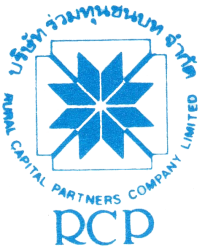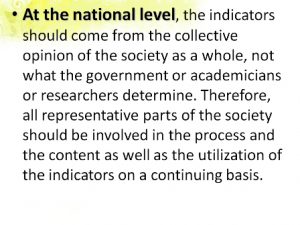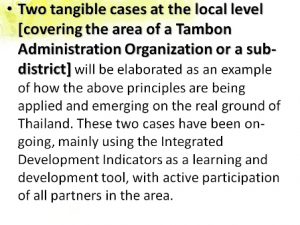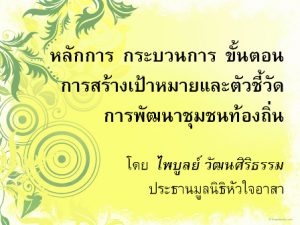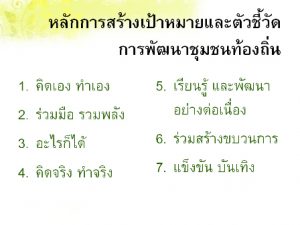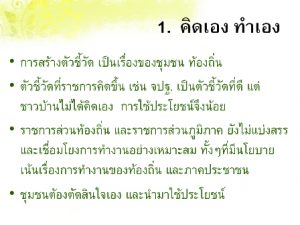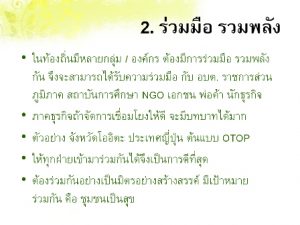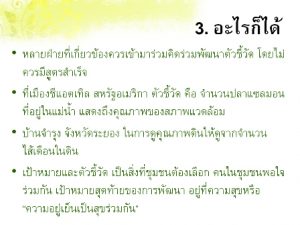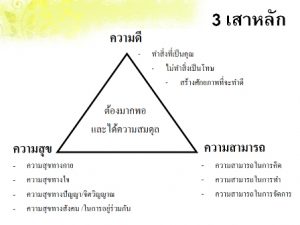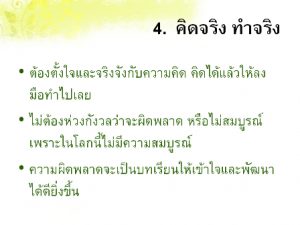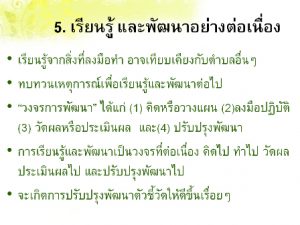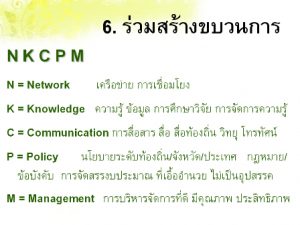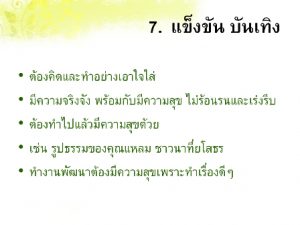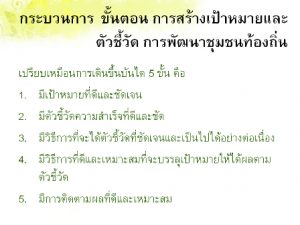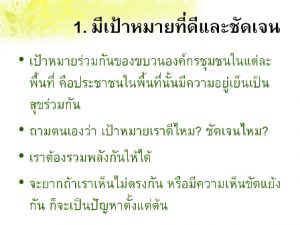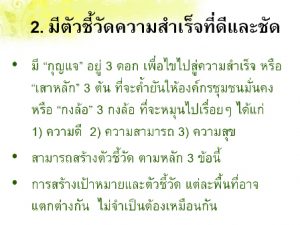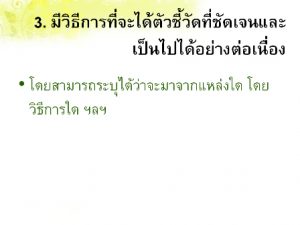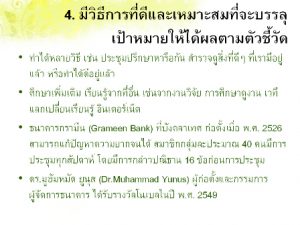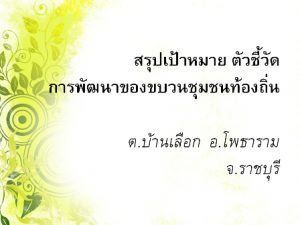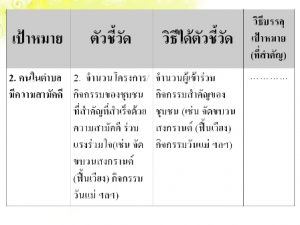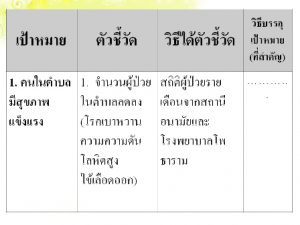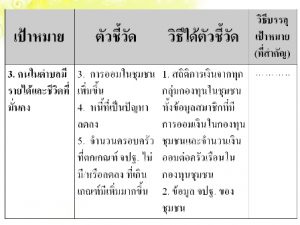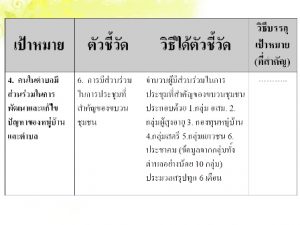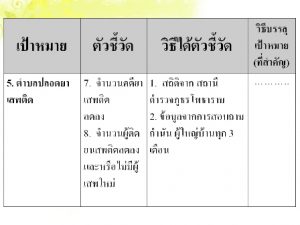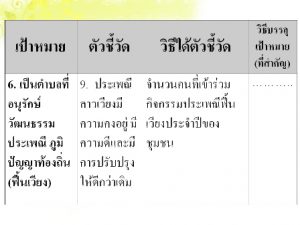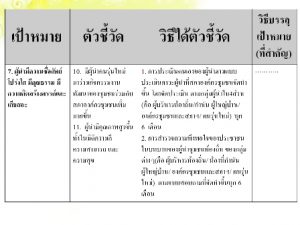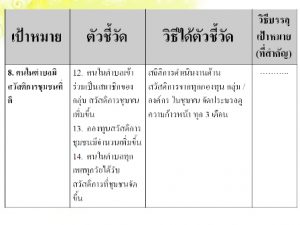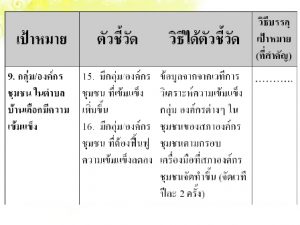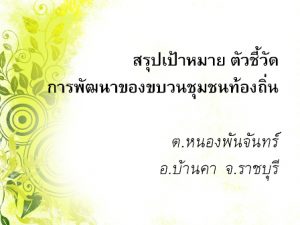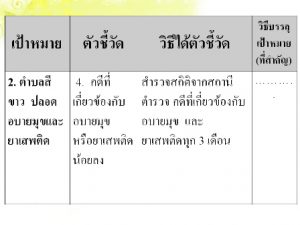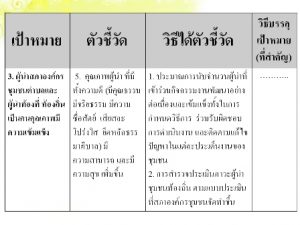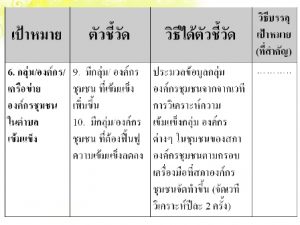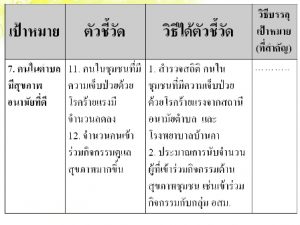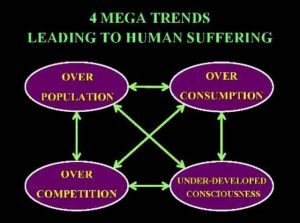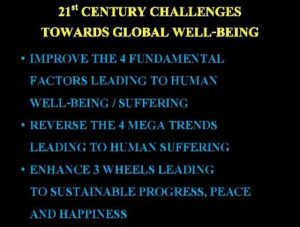TOBACCO TAX POLICY : KEY MEASURES TO SAVE LIVES
Opening speech
by
Paiboon Wattanasiritham
Former Deputy Prime Minister and Former
Chairperson of Thai Health Promotion Foundation
At SEATCA Regional Workshop on Tobacco Tax
1 April 2008, Montien Riverside Hotel, Bangkok
Distinguished Participants , Ladies and Gentlemen,
I am indeed honoured to be asked to give the opening speech at this regional workshop on Implementing WHO FCTC Article 6, Tobacco Tax, and I very much appreciate SEATCA for hosting and organising this important event.
Distinguished Participants,
People generally think that air crashes are shocking.
In 2007 there were 136 aviation disasters world wide, some big but mostly small, averaging a little more than twice a week and resulting in 965 deaths. That is equivalent to having about 3 jumbo jets crashing, killing all its passengers, in one year. But compare that with the number of people who die from tobacco-related diseases each year, then we have the equivalent of about 35 fully-loaded jumbo jets crashing each and every day, with all the passengers aboard killed.
Ladies and Gentlemen,
Yes, every year about 5 million people die from tobacco-related diseases worldwide. As the World Health Organization stated, there is ‘no other consumer product that is as dangerous, or kills as many people, as tobacco’. Tobacco is injurious to both health and a country’s economy.
This instills us with a stronger commitment to reduce such needless deaths. We need tobacco control laws and there is already the WHO-Framework Convention on Tobacco Control (FCTC) Treaty which 9 out of 10 ASEAN countries have signed and ratified. We need a comprehensive tobacco control legislation with tobacco taxation as one of the key features in protecting and promoting public health. Here is where it needs political will to push for a positive change in the interest of public health and where the Ministry of Finance has a crucial role to play.
According to the World Bank and the World Health Organization, a 70% increase in the price of tobacco could prevent up to about 25% of all tobacco-related deaths worldwide. We cannot claim to be able to save them all but this is the least we can do, given the fact that only every five in 20 smokers are likely to succeed in quitting the habit. The reason for most to fail is because of their being addicted to the highly addictive nicotine found in tobacco.
The Ministry of Finance should be supportive of the Ministry of Health in tobacco control efforts because, as we shall later see, these will be translated as fiscal earnings for the Ministries. In fact, it is a win-win situation which will benefit the society as well. For the fiscal aspect of tobacco control, the Ministry of Finance has a very important role to fulfill to ensure that tax measures are in place. I am confident that such efforts will receive full support of public health advocates.
Ladies and Gentlemen,
By the year 2020, it is predicted that 70% of all deaths from tobacco use will occur in developing countries, up from 50% today. This means that in the coming decades developing countries will face increasing costs from tobacco use in terms of health care expenditure and lost productivity.
Studies have also shown that these people are sensitive to cigarette price increase. A 10% price increase is found to cause a 4% drop in tobacco consumption in high-income countries and a 8% drop in low- and middle-income countries.
The 8% drop in tobacco consumption in a developing country is very significant because people from low- and middle-income groups are more price-responsive and so tax increases are likely to have a greater impact in developing countries where tobacco consumption is still increasing. Moreover, the money saved by smokers who reduced their consumption will be spent on other taxed goods.
Historically, raising tobacco taxes, no matter how much the increase, has never once led to a decrease in tobacco tax revenues. Thailand is one such example. Despite having such tough tobacco control laws and progressive tax increases, Thailand has been collecting an increasing tobacco tax revenue over the years.
Between 1993 and 2007 – a period of 14 years – Thailand increased tobacco taxes 8 times, from 55% to 80%. When we reflect on it, the number of packs sold decreased from 2,135 million packs in 1993 to 1,958 million packs in 2007. However, as the number of packs sold tumbled, the revenue earned soared from 15,345 million Baht in 1993 to 41,528 million Baht. This clearly demonstrates that increasing taxes to reduce smoking does not necessarily mean a drop in revenue.
Ladies and Gentlemen,
As increased taxes will reduce smoking, it will also help reduce the number of tobacco-related diseases and deaths over a long term period. Price increase induces some smokers to quit and prevent people from smoking initiation, particularly among youths. Price increase also deters ex-smokers from returning to their habit.
Despite having shorter life-span, a smoker’s healthcare costs during his or her lifetime far exceeds those of non-smokers. Moreover, the treatments for most of the tobacco-related diseases are very expensive, such as treatments for cancer and for heart and respiratory diseases.
Unfortunately, the costs of these treatments are often borne by tax payers, which therefore becomes a burden to the country’s coffer. But actually these are the costs that we can do without, and they can be substantially cut down by measures that bring about reductions in smoking.
The tobacco industry often tells governments that they are going to lose revenues if they increase cigarette taxes because people will buy fewer cigarettes. However, it is clear that this is a myth spun to protect the industry because, as I have pointed out earlier, addicted consumers respond slowly to price increases.
Another argument that the tobacco industry often touted is that high tobacco taxes will increase smuggling activities. No doubt smuggling is a serious problem. But the World Bank, in its 1999 Report, concluded correctly that since tax increases lower tobacco consumption while raising government revenue, the appropriate response should be cracking down on the criminal activities rather than foregoing tax increases.
Ladies and Gentlemen,
Thai smoking prevalence has fallen since 1991 . According to ThailandSimSmoke, which carried out studies of tobacco control policies and estimated the change in smoking rates and lives saved by these policies that have been implemented since 1991, it was found that the relative contribution of each specific policy on the reduction in male smoking prevalence as of 2006 was 61.2% for price, 21.8% for the marketing ban, 7.5% for media campaigns, 5.7% for clean air laws and 3.8% for health warnings. That means tobacco tax increase is the most important policy that contributes to the reduction of male smoking in Thailand.
Besides the conventional taxes, Thailand has added another 2% tax on tobacco and alcohol to fund the Thai Health Promotion Foundation. This 2% ‘sin tax’ has brought in approximately US$70 million every year for the purpose of health promotion in various forms, a significant proportion of which has been for tobacco and alcohol control. Incidentally, the main financial source for the Framework Convention on Tobacco Control implementation has come from this Foundation .
Distinguished Participants,
We should not sit back and watch increasing numbers of our youths being turned into nicotine addicts. We should not remain passive while so many people are dying from tobacco-related diseases. And neither should we allow members of the tobacco industry continue doing things their way uninhibited.
It should be the roles of both government and civil society to push for and bring about comprehensive tobacco control policies to keep the industry in check. Just as in the quote found on the American President Truman’s desk – “The Buck Stops Here” – we have to take up the challenge so as to help make our societies a better place to live in.
I wish you have a good and enjoyable workshop, with concrete and productive results.
Thank you.
อ้างอิง
บันทึกนี้เขียนที่ GotoKnow โดย นาย ไพบูลย์ วัฒนศิริธรรม ใน ไพบูลย์ วัฒนศิริธรรม
เว็บไซต์ ต้นฉบับ https://www.gotoknow.org/posts/175682

